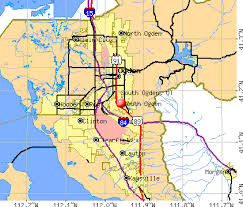![]()

Honors
3900: The City as Text
Class Schedule
This syllabus is intended to give students guidance in what will be covered
during the semester. However, there may be modifications, supplements, and
changes as course needs arise.
Learning objectives
Students
will be able to:
- Describe the
demographics of Ogden over the last 20 years.
- Observe and
describe various cultural landscapes (As defined by Carl O. Sauer: a
landscape molded from the natural landscape by a cultural group) created
throughout the city.
- Discuss on
the important components of the urban environment.
- Explain the
ways in which the city “works.” What are the civics of the city?
- Map the
patterns of life in Ogden.
Activities
in support of the learning objectives
Students
will:
Students will collect city-related “artifacts”:
news/web articles, images or their own photographs, summaries of conversations
with city residents, personal observations. For each artifact, students will
describe the artifact: how they came by it and how it
explains/illustrates/reveals some aspect of the city? Students should post at
least 2 items per week (one of which must be their written observations of
travels they made/places they observed. The other is a response to a colleague's
post.). Some entries will be based on mini-research projects into such as
social issues such as local and federal policies, immigration, domestic
violence, health inequalities, and other problems facing the city.
Entries will be posted on the course blog. The
course blog will be graded thrice during the semester:
-
Completeness on an ongoing basis -- at least 3 postings per week.
-
Quality of presentation
-
Depth of observation and insight
-
Evidence of reflection on class topics
Entries will be evaluated for their quality of
communication. If you deal regularly and effectively with the materials for
class in the journal, you will receive a B on the journal. If entries show
strong evidence of grappling with issues, of a quest for understanding, and/or
of effort to develop and support views, you will receive an A on the journal.
-
Create maps
- For each
walkabout students will draw a map
- Maps
will be submitted and discussion
- Consider
these questions in drawing your map:
- What
might someone find if they followed your map?
- What
artifacts inform your map?
- What
are you excluding from your map? Why?
-
Read and view
various texts and films as assigned
- Write
one short reflection statement - “Me and Ogden” – this could be a
formal summary and reflection on experiences or a creative expression such
as a literary piece or web site.
An “A” paper will contain at least the
following elements:
-
demonstration of clear understanding of the
course materials and experiences
-
demonstration of independent/original
thought
-
near-perfect mechanics, including spelling
and punctuation
-
Conduct a
mini-research project for Ogden City Council.
- Students
will work in teams with one of the faculty to research that which would
help the city council strategies about how to protect the open space
east of the city. The "deliverables:" will include:
- a
bibliography of sources
- a
presentation -- both material (poster, video, web page) and verbal
Effective learning in this course is contingent
upon active participation: coming to class prepared, engaging in the various
forays into the city, expressing observations and ideas in discussions.
Strategies in support of
Learning: Mapping, Observing, Listening, Reflecting
Students will explore certain assigned ares of
the city. They will post their observations and the class blog and will report
back for general discussions and exchange insights with others.
There are four basic strategies used in these
exercise (based on “City as Text” methodology)
- Mapping: Students
will construct the primary kinds of buildings, points of interest, centers
of activity, and transportation routes. Where do people go? How do they get
there” What do they do when they get there?
-
Observing. Students
will look carefully for the unexpected as well as the expected, for the
familiar as well as the new. Students will notes details of architecture,
landscaping, social gathering, clothing, possessions, decorations, signage,
and advertising.
-
Listening. Students
will talk to as many people as they can and find out from them what matters
to them in their daily lives, what they enjoy, what bothers them, what they
appreciate. Students will strike up conversations wherever they go. Students
will ask: how expensive is it to live here; where to find a mean – cheap or
good; what are the local politics, what stories to they know about
particular places; what is the population like? In other words, students
will imagine that they are moving to Ogden and are trying to find out
everything they need to survive her.
-
Reflecting. Throughout
their explorations, students will keep in mind that the people they meet,
the buildings in which they live and work, the forms of their recreation,
their modes of transportation – everything that they are and do-- are
important components of the ecology of the city. What are the particular
roles in the ecology: how do persons use it, contribute to it, damage it or
improve it, and change it? Students should consider that they are doing
serious research. Like all good researchers, students should be aware of
their own biases and should investigate them also.
Texts
- There will be
a variety of texts -- some on line.
- tour guides and other materials will be
supplied to students
Grades
Grades will
be based on a percentage of the points possible:
-
Artifact class blog 5 X 12 = 60 points
-
mini-research project 30 points
- Me
and Ogden paper 15 points
- Maps
10 points